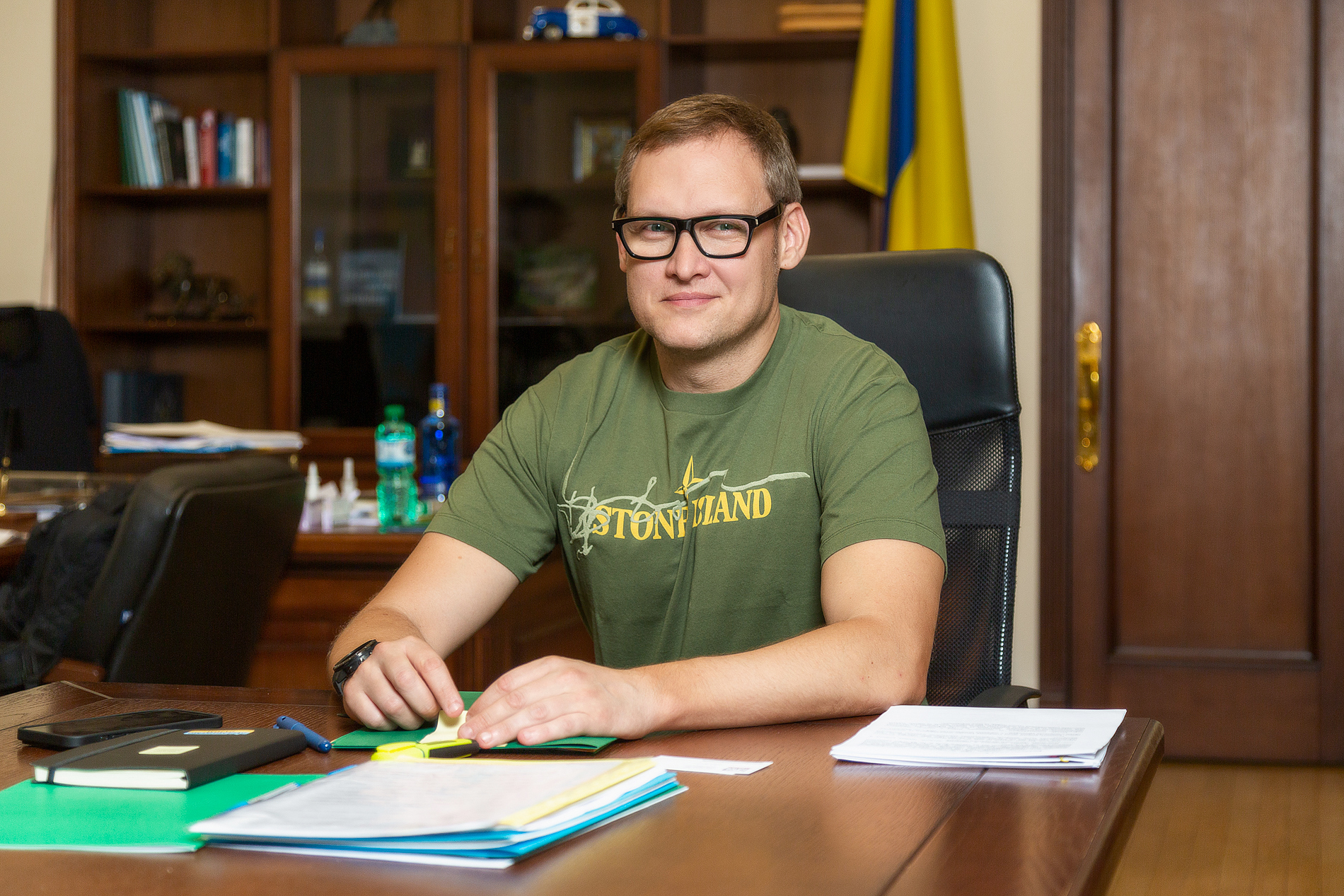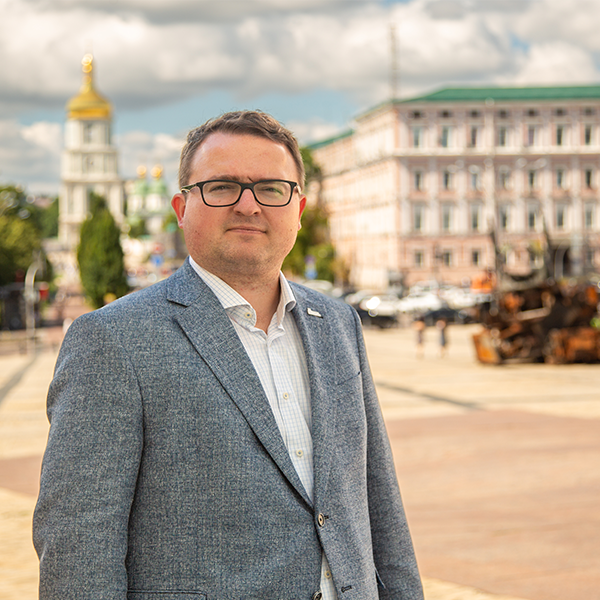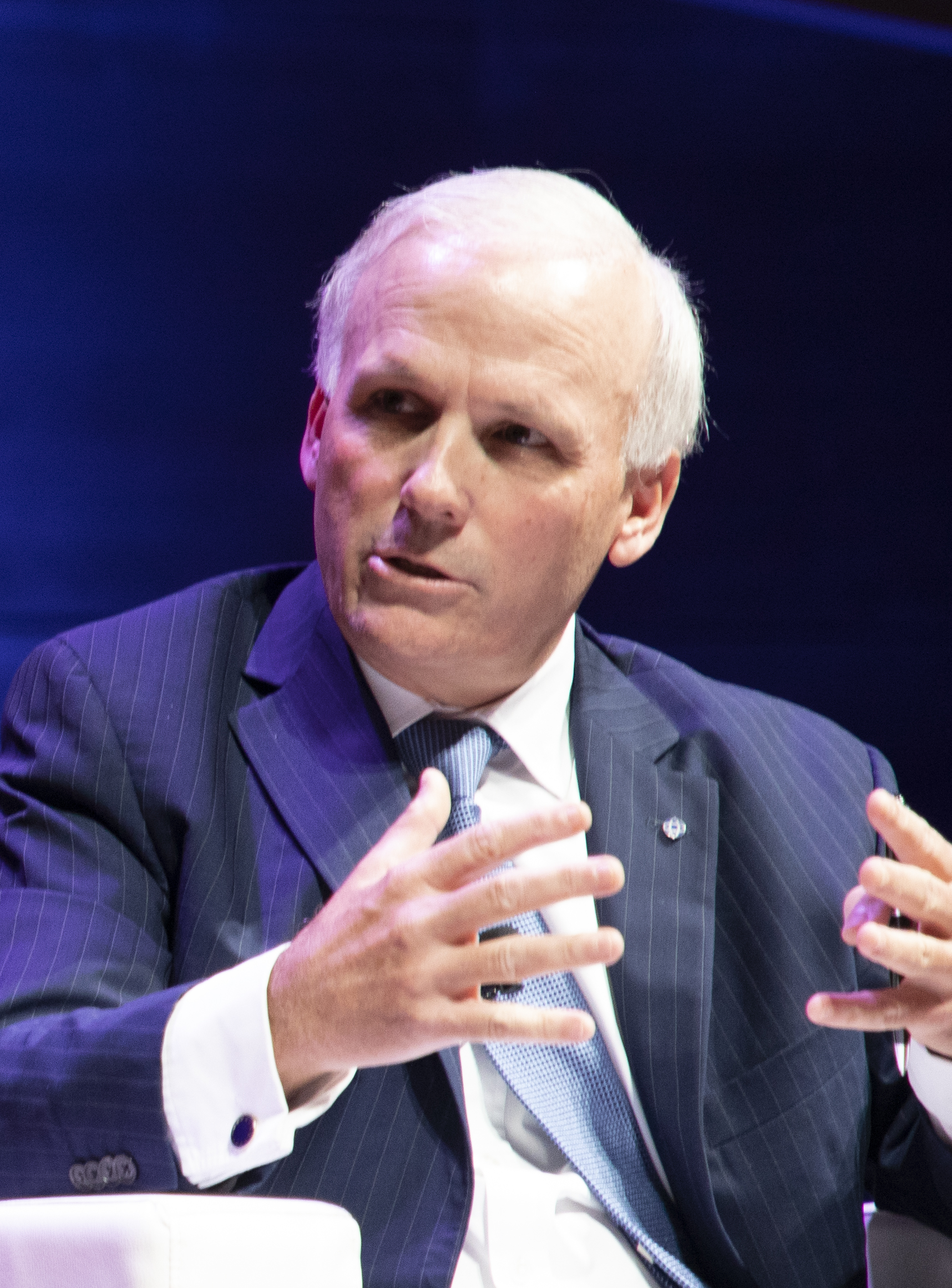Comment and analysis: Why the world needs a tribunal to try the Russian leadership for the crime of aggression
Wednesday 8 March 2023

Andrii Smyrnov, Deputy Head of the Office of the President of Ukraine;
Anton Korynevych, Ambassador-at-large of the Ministry of Foreign Affairs of Ukraine;
Mark Ellis, Executive Director of the International Bar Association (IBA)
Russia is the aggressor state in its war against Ukraine. This is not a hypothesis in diplomatic prose. It is an undisputed and proven fact. It is proven by the unending videos and photos of innocent Ukrainians killed, raped and tortured, by the countless number of Ukrainian cities and residential neighbourhoods intentionally targeted to destroy critical infrastructure, and by Russia’s stated policy to erase Ukraine’s national identity.
We are witnessing the most brutal and aggressive military act since World War II. The postwar legal order is in jeopardy. Thus, the entire civilized world must unite to take all possible measures to restore global peace and security. The international community must also ensure that those most responsible for the aggression against Ukraine are brought to justice. There are really no other options.
Because there is no existing international mechanism that can try Russia’s top political and military leadership for the crime of aggression against Ukraine, the international community must create one. Establishing a special international tribunal for the crime of aggression is an essential step towards achieving this goal.
In March of last year, Ukraine’s Office of the President and Ministry of Foreign Affairs began advocating the tribunal's creation. Several months later, the proposal was supported by the Parliamentary Assembly of the Council of Europe and by the European Parliament. Today, there are already numerous resolutions by the Parliamentary Assembly of the Council of Europe, the European Parliament, NATO’s Parliamentary Assembly, and the Parliamentary Assembly of the Organization for Security and Co-operation in Europe. The Seimas of the Republic of Lithuania and the parliaments of Estonia, the Netherlands, the Czech Republic, France, Latvia, and Slovakia have also adopted resolutions supporting the establishment of a special tribunal for the crime of aggression.

Andrii Smyrnov, Deputy Head of the Office of the President of Ukraine.
The first meeting of representatives from 21 countries (referred to as the 'Core Group') was recently held to discuss the proposed tribunal's operational model and other legal issues. The membership of this Core Group will continue to expand. Soon the International Centre for the Prosecution of the Crime of Aggression in Ukraine (ICPA) will commence work in The Hague to collect evidence of the crime of aggression and coordinate relevant investigations. In the near future, we expect the United Nations General Assembly to pass a resolution that will call for the punishment of Russia’s leaders for the crime of aggression.
What is the crime of aggression?

Anton Korynevych, Ambassador-at-large of the Ministry of Foreign Affairs of Ukraine.
The crime of aggression is one of the four core international crimes enshrined in the Rome Statute of the International Criminal Court (ICC). It is essentially a reinterpretation of the 'crimes against peace' concept first employed at Nuremberg and Tokyo, where dozens of suspects were convicted of the crime, including Hermann Göring and Rudolf Hess.
Article 8 bis of the Rome Statute defines the 'crime of aggression' as the planning, preparation, initiation, or execution of an act of aggression by a person who controls or directs a state's political or military action. The definition applies to the Ukrainian situation.
When the Rome Statute was adopted in 1998, the participating states could not agree on a definition of the crime of aggression. Only later, in 2010, at a special conference in Kampala, Uganda, was the above interpretation agreed upon.
Because of the exceptional nature of the crime, the amendments to the definition of the crime of aggression must be separately ratified by each State Party to the Rome Statute; by ratifying, they acknowledge and accept jurisdiction in relation to this crime. The ICC has no jurisdiction for this crime over countries that are not States Parties and consequently plays no role on this issue in Russia’s war against Ukraine.
To date, 44 out of 123 States Parties have ratified the Kampala Amendments.
Notably, the European Parliament resolution of 19 January 2023 calls on the European Union to take a joint stand on the crime of aggression and calls on Bulgaria, Denmark, France, Greece, Hungary, and Romania to accept and ratify the Kampala Amendments.
Who will be tried for the crime of aggression?
It is worth emphasising that no individual has been tried internationally for the crime of aggression before World War II and after the Nuremberg and Tokyo trials.
This demonstrates the current gap in the international legal system. To fill this void, the political will of the world's leading states is needed.
Russia’s full-scale invasion of Ukraine provides the impetus and the chance for change. Several possible ways of holding to account those responsible for the crime of aggression against Ukraine are being discussed now. Three of them are provided for in the Council of Europe’s information document of 31 January 2023:
- Establishing a tribunal based on an agreement between Ukraine and the UN, supported by the UN General Assembly.
- Establishing a tribunal based on a multilateral agreement between Ukraine and other interested states.
- Establishing a 'hybrid' tribunal based on Ukrainian jurisdiction and law but with international participation.
There are also two other possible scenarios being discussed among international legal experts:
- Extending the jurisdiction of the ICC over the crime of aggression to mirror the court’s jurisdiction over other atrocity crimes. This would be done by amending the Rome Statute. However, this process would take a significant amount of time.
- Creating a tribunal based on an agreement between the Council of Europe and/or the European Union and Ukraine (ie, the 'European' model).
The most effective option for us would be a tribunal based on an agreement between Ukraine and the UN or created by a multilateral treaty between Ukraine and other interested states. The tribunal must be as international as possible, with the broad support necessary to establish it as a legitimate and credible judicial mechanism.

Mark Ellis, Executive Director of the International Bar Association
The time has come to complete the architecture of international criminal justice initiated by the 1942 London Declaration. We need to fill the gap and establish a special tribunal with jurisdiction over the crime of aggression against Ukraine. The legal response to Russia’s war against Ukraine must be appropriate and must resemble the international community’s commitment to hold perpetrators accountable that emerged after World War II.
It is absolutely appropriate and right that Ukraine wants those responsible for this war to be brought to justice. And it is also appropriate and right for Ukraine to ask the international community to take the lead in establishing the special tribunal. The crime of aggression violates the most sacred principle in international law, that is, the prohibition of the threat or use of force against the sovereignty, territorial integrity or political independence of any state or in any other manner inconsistent with the purposes of the United Nations.
Thus, this is an international issue. It is not just a Ukrainian issue.
With great credit to Ukraine's partners and friends, we have already gained significant political support for creating a legal mechanism to bring to justice those who have committed this crime of aggression. This will
not only provide justice for Ukraine but will help secure international legal order and the rule of law for the world.
Image credit: misu/AdobeStock.com
